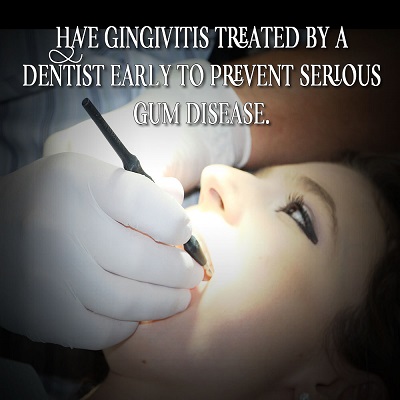 During our youth, we often neglect to practice good oral hygiene. We’re too busy having fun to spend time flossing. We eat foods that are unknowingly harmful to our teeth and gums. Then, as time goes by the plaque accumulates at the base of your teeth, sitting on your gum line.
During our youth, we often neglect to practice good oral hygiene. We’re too busy having fun to spend time flossing. We eat foods that are unknowingly harmful to our teeth and gums. Then, as time goes by the plaque accumulates at the base of your teeth, sitting on your gum line.
Ignoring plaque will let them harden into tartar and invite bacteria to thrive. Accumulation of bacteria, together with mucus and particles of food that have not been brushed off, will lead to a gum disease called Gingivitis.
What is Gingivitis?
Gingivitis is a mild gum disease that causes inflammation, irritation, and redness to your gums or gingiva. These are the bases that support your teeth. Over time, the plaque and tartar that stay on your teeth will irritate your gingiva and make it swollen and sensitive. Then your gums will bleed easily.
Although it starts as a relatively mild condition, you cannot chew your food properly if it becomes severe because your gums will recede, and the teeth will lose their support. If it occurs, you must have a dental treatment to prevent periodontitis, the primary cause of tooth loss, especially among elderly persons.
Causes/Risk Factors of Gingivitis
- Bacteria, fungus, or viruses that infect the mouth.
- Diseases such as HIV, diabetes, and cancer.
- Genetics, if your parents have a history of gum disease.
- Hormonal change because of menopause, menstruation, pregnancy, or puberty that make gums more sensitive and prone to bleeding.
- Malnutrition, an unhealthy diet, or inadequate nutrition such as vitamins C and B3 deficiency.
- Oral medications that decrease saliva flow and cause abnormal development of gum tissues.
- Poor oral hygiene or mouth wounds.
- Reaction to foreign things such as poor-fitting dentures or retainers.
- Smoking.
- Systematic factors that include allergies and genetic disorders.
- Age – as you age, the risk of developing gingivitis increases.
Symptoms of Gingivitis
- Bad breath even after brushing and not eating.
- Bleeding gums when you are brushing and flossing.
- Your gums become bright or dark red and swollen instead of a pinkish color.
- Gums are tender and cause pain when touched and may bleed.
- Receding gums where your gums pull away from your teeth.
What are the Treatments for Gingivitis?
In order to get the right diagnosis and treatment, you still need to consult a dentist. If they see that the depth of your teeth’s pocket is over 3 millimeters, you are a candidate for gingivitis and gum disease. Removal of plaque and tartar during the early stage of gingivitis is important so that inflammation will subside.
Here are a few things you may need to do to help reverse and prevent gingivitis:
- The dentist may prescribe you an antibacterial mouthwash containing chlorhexidine or chlorine dioxide. It will contain the growth of bacteria. Unlike ordinary mouthwashes, they have no significant amount of alcohol that will irritate your inflamed gums. Chlorhexidine is easier and more potent to use while chlorine dioxide has a more preferable taste but is less potent in preventing plaque formation.
- Have professional teeth and gum cleaning once or twice a year. People with a predisposition to the disease may need cleaning every three months.
- Scaling – The dentist will remove the hardened plaque and tartar on top and beneath your gum line thoroughly. This procedure is not painful because you will be given a local anesthetic. They may also need to repeat the procedure as needed.
- Try using an electric toothbrush. It is more efficient than a manual toothbrush in cleaning your teeth and gums to prevent plaque.
- Proper brushing and flossing. Brush your teeth at least twice a day. Follow up with flossing once a day. This is effective hygiene for adults and children.
- Use a plaque and tartar control toothpaste to help prevent the onset of gum disease.
- If you have a predisposing disease such as diabetes, taking care of your health, and treating the condition, besides having good oral hygiene will help to prevent gingivitis.
- For postmenopausal women that have desquamative gingivitis, follow-up check-ups and constant cleaning are needed.
An Important Reminder
Maintaining proper dental hygiene is necessary to avoid gingivitis from becoming a severe gum disease. It can hugely affect your overall health, so fight this gum disease if your teeth and gums are still healthy. If not, gingivitis is reversible with proper treatment and oral care.






